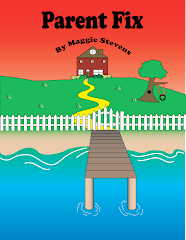What is the correct way to discipline your child? Just mentioning the word discipline brings up controversy. Spank or not spank... rigid or relaxed... force or freedom...tough love or abuse; there are many opinions. All families are different. Parents have their own personalities. Children are unique. No family situation will or can be the exact same. So it is difficult to set hard and fast rules about what kinds of discipline will work in your home. Having said that, I must emphasis that there are certain truths about discipline that must not be ignored.
The word discipline comes from the Latin word disciple, which means to teach or to learn. Discipline was never meant to be used as a form of punishment. If your chosen method of discipline does not teach your child how to improve, it is absolutely wrong! Your role as a parent is to nurture your child. Children need time, care and parental involvement in their lives. They need to be allowed to make mistakes and not be punished for making those mistakes. Things can go very wrong if a child doe not receive positive messages when they do something wrong. Don’t call it a failure, call it an education.
Many professionals claim that a lack of strict discipline is the problem with today’s kids. This is simply not true. In fact, just the opposite is true. If your home environment involves overly strict parents with rigid discipline, your kids will at some point rebel, publicly or privately. When parents use a rigid form of discipline, they are parenting out of fear. Why are they fearful? There are multiple reasons:
*Parents are frightened they are losing control of their child.
*Parents are frightened they are losing power over their child:
*Parents are frightened they are not good parents and do not know how to handle a situation.
When you discipline out of fear you eventually use control to discipline. Control is often referred to as tough love. Tough love is a lazy parenting technique that exhibits itself when a parent is tired or not willing to put in the effort to figure out what they need to do to help a child. From personal experience with my own children, when I got tough, they quit trying. Children do not need toughness. They need love, understanding and help.
Anger usually accompanies tough love or control. When a parent uses anger as a form of discipline they believe they are commanding respect from their child, Anger is often used by parents because it gives an immediate response, stopping a child from a particular behavior. Do not fool yourself as a parent. When you use anger in your discipline, there is always damage to your child. A child who is fearful or acts out with violence is a child who has been raised with an angry parent. As an adult you are in charge of your emotions. Calm yourself when you are disciplining your child.
So if control and rigid rules are not the best way to discipline, what is the best way to discipline your child? Ask yourself how you like to be reprimanded. At work, do you learn when a boss or co-worker yells or sets rigid rules when you make a mistake? No. Don’t you learn more when someone communicates with you in a gentle manner? That is the exact way you will have success with your child.
I learn best from examples, so let me give you a positive example. Say your son is playing baseball too close to the house and a ball breaks the window. You may have already asked him to be careful and he probably knows better. If your response is to scream at your son or take away his baseball or ground him, has he learned anything? When you humiliate your child, you have robbed yourself of the opportunity to teach. Your goal with discipline is to help your children learn from their own experiences in a positive manner. Your child has made a mistake. He knows he has made a mistake. The shattering of the glass makes anyone cringe. Begin by helping your child clean up the glass. This gives you an opportunity to do something physically and also gives you time to calm down. This is a great time to gently
talk to your child about the expenses involved with a broken window. Give your child opportunities to earn small amounts of money to replace the window. When a difficult situation is handled with love and understanding instead of punishment and degrading, a great lesson is learned that will stay with your child for the rest of his life.
It is important as parents to learn about the stages of development and recognize that certain undesired behavior may be normal for a child at a given age and maturity level. Such knowledge can help a parent respond lovingly when a child pushes an anger trigger. Practice expressing concerns calmly and with an attitude of respect, without attacking or blaming your child. If you can change your attitudes about discipline from one of punishing to teaching, you will be amazed at the maturity and growth you will witness in your child. Your child will be confident, happy and successful. Isn’t that what we all want as parents? Give it a try!
Friday, February 18, 2011
Subscribe to:
Post Comments (Atom)





No comments:
Post a Comment